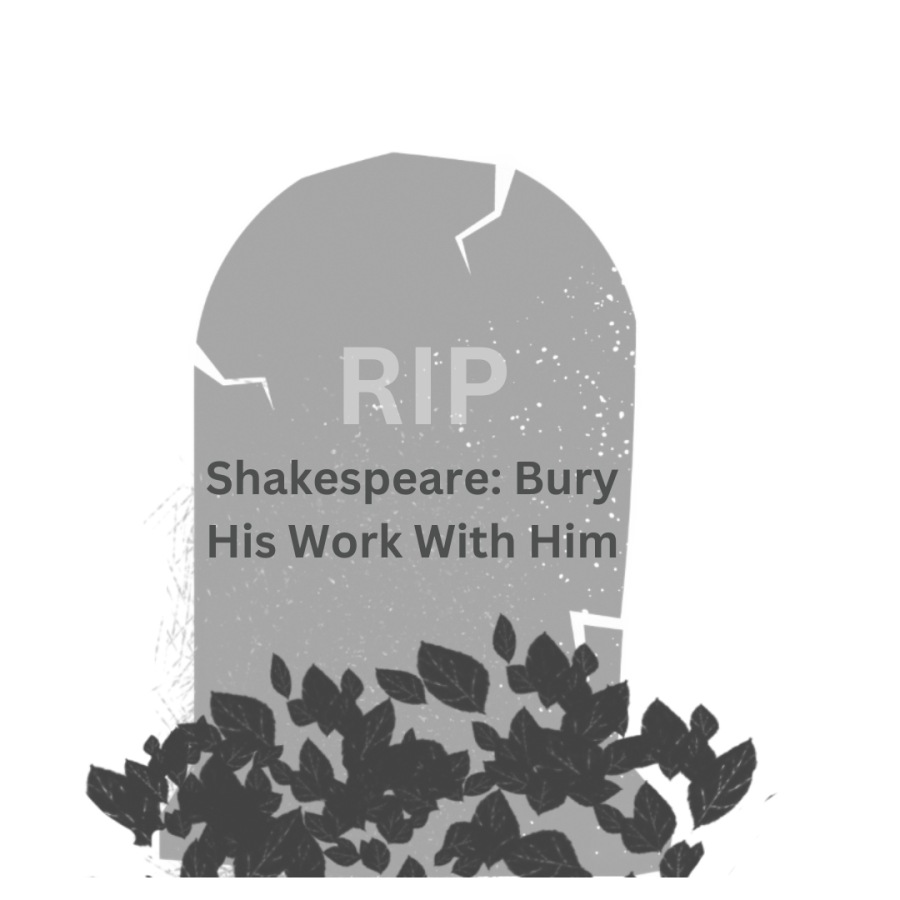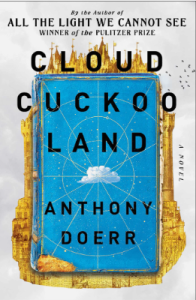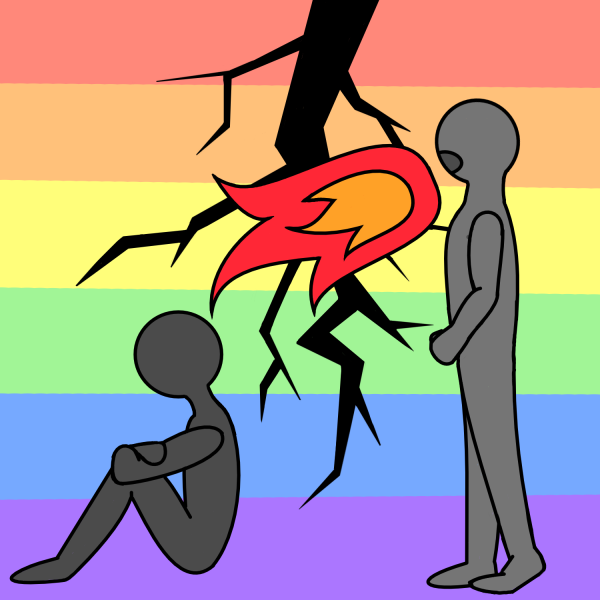Shakespeare: Bury His Books With Him
March 13, 2023
Outdated, overrated, and obnoxious. This is the only way to describe Shakespeare’s writing; yet, for centuries he’s been deemed as a classic. His reign has remained strong, but it’s time for Shakespeare’s influence to become like him: dead.
Teachers can undoubtedly do amazing things with his work, but who’s to say if it’ll have any impact on students? He’s regarded as boring for a reason. When students are forced to read his work annually, Shakespeare becomes more of a task and less of a lesson. People don’t respond well to this constant recycling of insufferable material.
In addition to being boring, he’s also confusing. His ancient sentences are brutal to comprehend. While challenging students can be beneficial, reading dialects from centuries old pieces is the work of scholars, not high school kids. His plays are plays; they aren’t bound for lecture based classrooms, they’re designed to be performed.
“Actors and audiences are supposed to argue over meaning, finding multiple ways of delivering word and deed,” Guardian journalist Mark Powell said.
The ambiguity of Shakespeare’s language cannot be explored in the classroom as it is on stage.
Shakespeare’s work is an entirely different style of English and can only be taught effectively when it’s the primary focus of a class – his style of writing can be its own unit entirely. The archaic and complicated language make it more difficult for students to understand the storyline as well as the themes hidden within the writing.
While dense and at times unbearable, there is a reason he’s still taught. His craft is one of a kind, and while the tragedies are often too much, his comedic plays are regarded much higher by students.
With this in mind, Shakespeare shouldn’t be absent from all teachings, instead we should diversify his influence. Teachers such as Erika DeShay-Lowencron and Mhari Doyle recognize this and have begun to implement comedies such as A Midsummer Night’s Dream into the course load.
With comedic plays on the rise, it’s time for tragedies such as Romeo and Juliet to go. A traditional story of love and hate, betrayal and envy, a standard in English literature, but what is its importance? Not enough to be taught.
Romeo and Juliet’s themes are somewhat applicable today, but are hard to grasp, most notably from the way the characters are presented.
“[Shakespeare] pioneered in delineating human beings who suffered change because their relationship to themselves changed,” literary critic Harold Bloom told the Global Electronic Conference.
Bloom’s statement is accurate. In Romeo’s instance, his role in the story progresses from a comedic figure to a more emotionally driven character. But how are students supposed to understand that if they can’t read it? All his complexity is overshadowed by the nature of the text.
And even a well crafted character like Romeo falls victim to Shakespeare’s redundancy, and the legendary Russian author Leo Tolstoy also thought it was a problem: “His characters speak, not their own, but always one and the same Shakespearian, pretentious, and unnatural language,” Tolstoy said.
Tolstoy’s point is the epitome of why reading Shakespearian text is obnoxious. His complexity is on another level, but seems to fall short when it comes to characterization. The only thing that sets each of the characters apart is physical appearance and their individual plot lines. Whether it’s “the fool” or one of his many female characters attempting to sound poetic, all of his characters articulate the same sentences.
As annoying as Shakespeare can seem, he isn’t the actual problem. It’s our ability to interpret him. It’s far easier to teach something that students can actually relate to than relying on an educator’s commentary and analysis. And taking Shakespeare out of the main curriculum opens up new doors for more recent works such as The Phantom of the Opera.
For the general sake of society, Shakespeare should stop being regarded as the greatest playwright. We need room for new authors to blossom within the intricate garden of literature.




























![In a recent surge of antisemitism nationally, many have pointed towards social media and pop culture as a source of hate. “Many far-right people have gone on [X] and started just blasting all their beliefs, Sophomore Scott Weiner said.](https://unionstreetjournal.com/wp-content/uploads/2023/10/antisemitism-popculture-2-1200x675.jpg)










